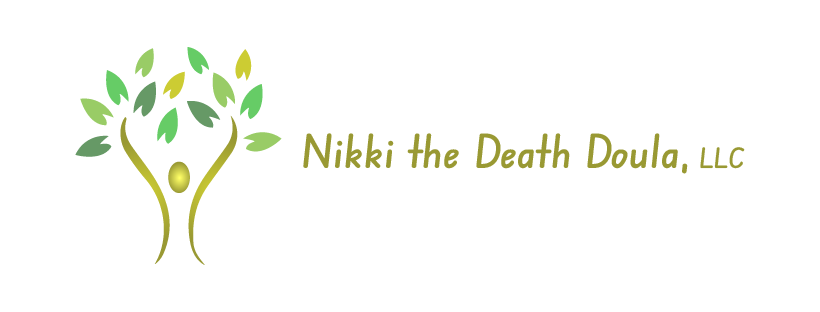How Death Doulas Honor Cultural and Spiritual Practices
I actually get asked a lot about this. “How do you support someone who is (insert religion/culture other than my own)?” It’s really easy….I just do. In my personal opinion, and I'd hope this is universal here, but that should never affect how you are treated as a human being, especially at the most significant moments of life. Besides, death is the great uniter. The one thing every single one of us has in common.
That said, the way we approach it is deeply personal. From the way someone prepares to die to the way their community mourns, cultural and spiritual traditions offer structure, meaning, and comfort in life’s final chapter. Death doulas walk beside people during this sacred time—not to lead, but to support, witness, and honor the traditions that matter most to the dying and their loved ones.
One of the core principles of death doula work is non-judgmental presence. And I say this ALL the time, that I provide a safe and non-judgemental environment for everyone. That means meeting people exactly where they are, whether they’re devoutly religious, deeply spiritual, culturally rooted, or entirely secular. The role of a doula isn’t to impose beliefs or practices—it’s to create space for your beliefs and practices to be honored, amplified, and respected.
I’ve worked with Christians, Buddhists, Jewish, atheists and non-theists.
Some families may want prayer and scripture. Others may want ancestral rituals, smudging, chanting, or silence. (I talked about the myth that we’re all coming in with sage sticks and oils and Enya music.) Some want a playlist of 90s R&B and someone to hold their hand while they talk about their dog. No matter what it looks like, a death doula’s job is to listen first, then help facilitate what the dying person and their loved ones need most.
Many cultures have very specific rites around death—washing and dressing the body, sharing certain foods, or gathering for multi-day vigils. A doula can help educate others in the room about these customs (with permission), advocate for them in a hospital or hospice setting, or assist in carrying them out. They’re often a bridge between the medical system and the spiritual one, helping make sure institutional rules don’t steamroll family traditions.
(I know people worry about this, but I have found most hospitals and care facilities are very open about letting people practice their traditions within reason)
Spirituality doesn’t always come with a label. For some, it’s about energy, nature, storytelling, or a sense of something greater without needing doctrine. A death doula knows how to hold sacred space without needing a script. They can offer guided visualizations, breathwork, legacy projects, or simply sit in quiet companionship as someone reflects on their life.
Let’s be real—this world isn’t always kind to people outside the dominant culture. (I know, shocking, right?!) End-of-life care can often feel sterile, rushed, or culturally tone-deaf. Death doulas act as cultural humility advocates, asking what matters most to you and then doing their best to make sure it happens. They may coordinate with spiritual leaders, suggest ways to involve extended family, or simply remind everyone that this time doesn’t have to be one-size-fits-all.
And it’s not just about the dying—it’s about the living too. Death doulas support grieving families by honoring mourning traditions after death, whether that means preparing the body at home, creating altars, organizing memorial rituals, or simply being the calm in the chaos.
In a world that often rushes past death or sterilizes it, death doulas bring the human, cultural, and spiritual aspects back to the center. Death is more than a medical event—it’s a rite of passage. And every passage deserves a witness who says, “Yes. This matters. Let’s do it your way.” Because, far as I know, we only die once.
